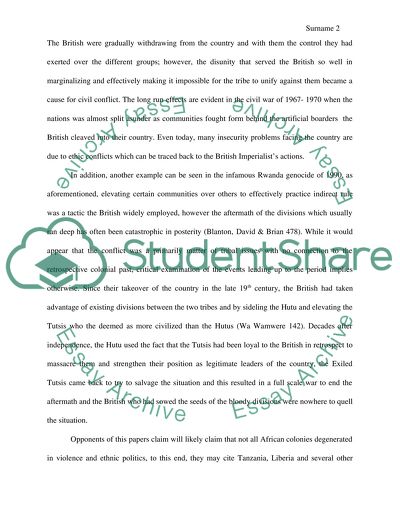Cite this document
(“British Ethnic Legacy in Africa Essay Example | Topics and Well Written Essays - 1000 words”, n.d.)
Retrieved from https://studentshare.org/social-science/1493667-british-ethnic-legacy-in-africa
Retrieved from https://studentshare.org/social-science/1493667-british-ethnic-legacy-in-africa
(British Ethnic Legacy in Africa Essay Example | Topics and Well Written Essays - 1000 Words)
https://studentshare.org/social-science/1493667-british-ethnic-legacy-in-africa.
https://studentshare.org/social-science/1493667-british-ethnic-legacy-in-africa.
“British Ethnic Legacy in Africa Essay Example | Topics and Well Written Essays - 1000 Words”, n.d. https://studentshare.org/social-science/1493667-british-ethnic-legacy-in-africa.


